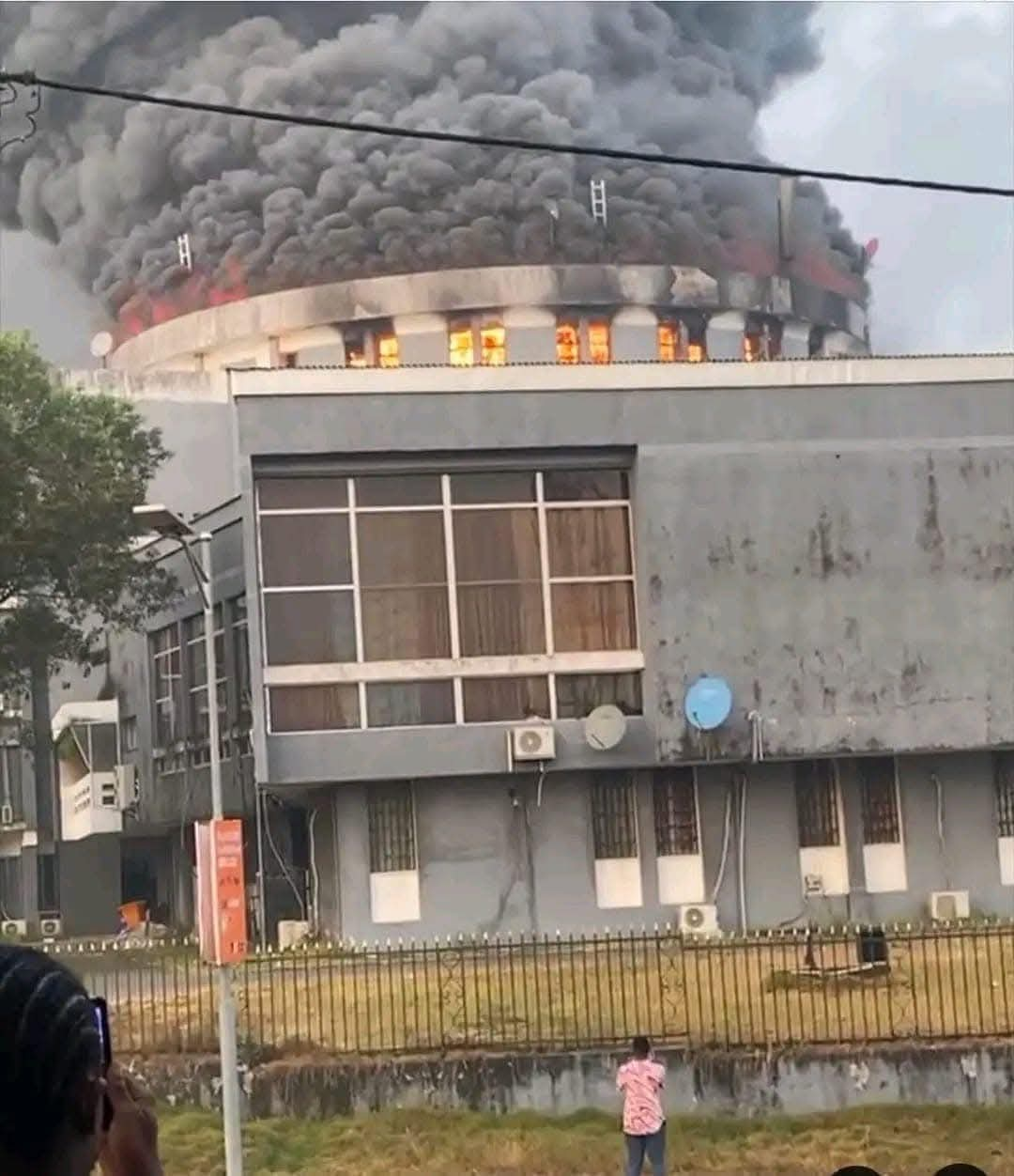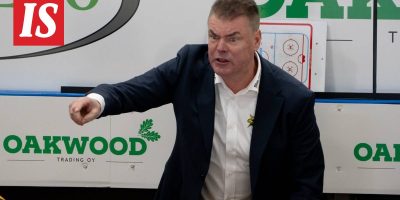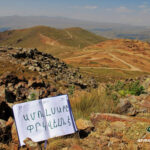By Hun-Bu Tulay
Cell #: +231-777-111-032/886-517-356/Email: [email protected]
“Never be afraid to raise your voice for honesty and truth and compassion against injustice and lying and greed.” William Faulkner
For years, our voices have echoed the clarion call for honesty, integrity, and compassion, standing resolutely against the deep-rooted injustices, rampant corruption, and abuse of power that suffocate our society. Tragically, these passionate appeals have fallen on deaf ears among our politicians, legislators, and judges, leading our beloved nation to the brink of collapse. Our writings have tackled a range of pressing issues: the disheartening performance of our legislature, driven by a debilitating lack of political courage; the insidious politicization of our courts; the widespread reluctance of the public to confront a failing system; and the controversial declaration of a Senate seat as vacant, despite the Election Commission’s prior announcement of a winner. These critical discussions illuminate the ongoing crisis plaguing Liberia, a situation that should ignite concern in every citizen’s heart. Yet, because of our collective silence, we have arrived at the unprecedented and shameful point of BURNING THE CAPITOL BUILDING.
To truly grasp how we reached this tragic juncture, we want to share passages from two significant writings: “My Heart Bleeds for My Country” and “Blind Loyalty.” These excerpts will illustrate our perspective and provide context for the recent fire incident at the Capitol.
In “My Heart Bleeds for My Country” written in 2022, we unraveled a profound question during a gathering of esteemed Liberians: “Why do so many government officials choose to deceive their bosses, particularly the President?” The atmosphere was charged as about 15 professionals comprising lawyers, accountants, economists, social workers, and engineers shared insights and experiences. This gathering represented a cross-section of educated Liberians, each a testament to the country’s potential.
One poignant voice in the group, a man with a master’s degree in political economics, responded with a sense of resignation, “Because they want to keep their jobs.” To my astonishment, an overwhelming 80% of those present nodded in agreement. We were left grappling with the disheartening question: “Is it truly about job security and self-interest? Have past and present government officials compromised their integrity merely to maintain their positions? Reflecting on our history and the texts we’ve studied, we’re reminded of a powerful truth: “If you seek personal gain, deceive your leaders. But if you wish to safeguard your country or its leaders, speak the truth. The truth is akin to surgery; it may hurt, but it ultimately heals. In contrast, a lie acts as a painkiller offering immediate relief but carrying lasting side effects.” The deceptions we’ve communicated to our leaders have led to dire consequences, exemplified by the burning of the Capitol Building. This event stands as a stark reminder, one that will resonate through the ages as future generations look back on this pivotal moment in our history.
That night, we reflected deeply, haunted by the reality of what we had heard. We were reminded of a former Central Bank Governor who boldly proclaimed, “Even if I have to set aside the Central Bank Act to follow the President’s orders, I will do so and do what the president wants.” Such an admission, especially from a bank Executive of extensive experience, cuts to the core of our current struggles.
There have been times in our history when leaders stood firm for honesty, courageously confronting their superiors. We vividly recall President Tolbert’s remarks at the commissioning of Edwin Williams as Minister of Finance. In that moment, Williams stood tall, saying, to Mr. Williams, I am the captain of this ship, if I say sail you sail. In response, Mr. Williams said to Tolbert. “I am the chief engineer of the ship; I will resign if I believe obeying your commands will lead to catastrophe.” The bravery of individuals like Madam Christina Tarr and Taiwan Gongloe, who chose to resign or leave government positions over unethical demands, speaks volumes about the leadership we need today. As we reflect on the current Justice Minister’s Opinion, we are of the opinion that neither Minister Tarr nor Gongloe would write what the current Minister wrote. This is a BIG SHAME.
Where are the stalwarts of honor like Grimes, Pierre, and Edwin Williams, who once carried the torch of accountability? It is disheartening that such distinguished figures are conspicuously absent from our current government. Both Findley and Cheapoo, once influential senators who dared to challenge the status quo, faced exclusion for their principled stands. Cheapoo who also served as Chief Justice fought against judicial corruption suffered a similar fate, illustrating a troubling pattern of silencing dissenting voices. Today, many ministers seem more consumed with preserving their jobs than committing to moral action, leaving a void where courageous leadership should flourish.
Consider the events surrounding the 1985 election: the chairman’s appeal to Samuel K. Doe to appoint a 50-man committee for ballot counting. Despite this blatant violation of our election laws (S 4.2 subsections (a) and (b), participating political parties accepted the outcome without protest. Similar failures continued when Browne Samukai neglected to contest a Senate vacancy declared after he had already been announced the winner. We have extensively documented these instances and drawn parallels to similar failures in other democracies.
Challenging the Status Quo
Transforming the entrenched system demands sacrifice and unwavering resolve. Figures like Abraham Lincoln risked everything to elevate the status of marginalized communities in America; Steven Biko paid the ultimate price with his life, and Nelson Mandela endured 27 harrowing years in prison to dismantle the oppressive apartheid system. Leaders like Kwame Nkrumah faced imprisonment in the pursuit of Ghana’s independence, while the founders of MOJA and PAL courageously fought for Liberia’s multi-party democracy. Yet, many in contemporary Liberia hesitate to make sacrifices for change. In a recent display of Executive Presidency, the executive successfully pressured two sitting Speakers to resign. The speakers fail to challenge the executive. This legacy of bravery must inspire us all to act if we ever wish to build a better future. We admire Speaker Koffa’s position currently. His position is backed by the constitution.
Blind Loyalty
In our analysis of “Blind Loyalty,” we delve into a dangerous mindset that prioritizes unwavering allegiance to individuals or causes, even at the detriment of truth and morality. Blind Loyalty manifests when people choose to support others blindly, valuing loyalty above objective judgment. This phenomenon often leads to the preservation of positive images for individuals or movements, even in the face of their misdeeds, resulting in a collective denial of reality. Such individuals are often referred to as blind loyalists.
The implications of Blind Loyalty can be profound, giving rise to cult-like behavior within social groups, political parties, or religious organizations. In these environments, leaders wield significant power, and followers are compelled to comply without question. Historical examples abound: the Nazi regime in Germany orchestrated mass atrocities, including the genocide of six million Jews, driven by Hitler’s manipulative narrative that painted Jews as enemies. Today, we see echoes of this blind allegiance in the Republican Party, wherein approximately 95% of congressional Republicans align with Donald Trump’s directives, closely observed during the January 6 investigation.
Religious movements can also devolve into cults, as evidenced by Jim Jones’s People’s Temple, where over 900 followers were led to their deaths in the Jonestown Massacre under the tragic belief that they were securing a place in the afterlife. Similarly, Charles Manson’s Manson Family portrayed a harrowing example of social manipulation, as Manson misled his followers into committing acts of violence under the guise of preparing for an apocalyptic race war.
In cult organizations, be they political, social, or religious leaders often do not need to explicitly call for violence. Instead, loyalty manifests in acts of intimidation or aggression executed by followers who fear disloyalty or seek favor. This atmosphere poses a grave risk to those labeled as opponents of the cult. Blind loyalists often resort to violent tactics to silence dissent, rewarding those who vocally support their leaders, regardless of the objectivity of criticism.
The troubling trend of political parties transforming into cults should concern us all. Expressions of blind allegiance, like threatening statements made in the heat of politics, reflect a dangerous shift toward a tribal mindset that prioritizes loyalty over ethical discourse. This trajectory ultimately steers our society toward division and conflict, underscoring the urgent need for political leaders to foster accountability and transparency.
Blind Loyalty is often based on flawed reasoning. Individuals dismiss absolute moral standards in favor of justifying wrongdoing for the sake of self-gain. This situational ethics mentality can lead to justifying harmful actions under the guise of achieving a greater good. Politicians frequently exploit such mindsets, enticing support through the lure of financial rewards or power.
The history of Blind Loyalty in Liberia dates back to 1955 and has intensified a little during the Samuel Doe presidency. It peaks in post war Liberia. Today we are left with this TOXIC DISEASE. But how did we get to this point? The concept of Blind Loyalty began to intensify during the tumultuous civil crises, a period marked by violence and division. In such a chaotic landscape, fighters discovered that their allegiance to faction leaders significantly influenced their fortunes. Those who demonstrated unwavering loyalty were not only rewarded with generous resources but were also granted unrestrained power; power that allowed them to act without fear of repercussion or discipline. This created an environment where loyalty trumped morality, and accountability became a distant notion.
As the dust settled and the warring factions morphed into political parties, the culture of blind loyalty persisted, becoming even more entrenched. Party members found themselves compelled to pledge their allegiance to charismatic leaders like Prince Y. Johnson of the National Democratic Party (NDR), Alhaji V. G. Kromah of the All-Liberian Coalition Party (ALCOP), Charles A.G. Taylor of the National Patriotic Party (NPP) and George M. Weah even though he is not charismatic, but he is popular. These political outfits, much like their predecessor factions, evolved into tribal entities, intertwining ethnicity with political identity.
Reflecting on the last nineteen years, it is striking to note the absence of any substantive effort by our presidents to instill a sense of patriotism and national unity among party members. Instead, the interests of these political leaders took precedence over collective welfare, and as a result, the potential for genuine transformation was overlooked. The consequences of this neglect are painfully evident today, highlighted by alarming events such as the burning of the Capitol Building. If only our leaders had prioritized the reformation and cultivation of former fighters into responsible and engaged citizens, perhaps our political landscape would be markedly different, less toxic and more conducive to unity and progress. Let this serve as a sobering reminder of the importance of visionary leadership in shaping a more harmonious society.
Instances of this misguided loyalty have been palpable in the six years of President Weah’s administration and the early footsteps of Boakai’s leadership.
The events of December 17, particularly the Capitol riot, raise pressing questions about accountability and leadership, and the political culture in our country. Before going we would like to give some historical background.
Understanding our political environment
The political arena can often appear dominated by parties that exhibit cult-like tendencies, fostered by fervent loyalty and extreme ideologies. Members of such parties frequently penetrate different sectors of government, cultivating a landscape prone to manipulation and peril. It is concerning to think that a single command from a party leader could unleash significant turmoil, highlighting the frightening potential of unchecked authority.
To grasp the seriousness of this matter, we can examine two historical instances that exemplify the dire consequences of extremism.
On October 30, 1948, the world mourned the loss of Mahatma Gandhi, a steadfast proponent of peace and non-violence, who was assassinated by Nathuram Vinayah Godse. Godse was not just an isolated actor but emerged from a milieu steeped in fanaticism, motivated by a distorted sense of duty and ideology.
Fast forward to October 6, 1981, and we see a similar fate befalling Anwar Sadat, the Egyptian president renowned for his pioneering peace agreement with Israel. He was brutally killed by Islamist extremists who vehemently opposed his vision for peace in the region. Their violent actions were a misled attempt to obliterate any prospects for reconciliation, driven by an ideology that dismissed dialogue and mutual understanding.
These tragic events remind us of the profound toll taken by hatred and extremist views. The stories of these individuals should resonate strongly within us, compelling us to cultivate compassion, dialogue, and a commitment to understanding as we navigate politics and society. We must be mindful of our words, as what we say can either ease or aggravate tensions. The term “hooligans,” for instance, was not suitable for our current context.
Who is the president calling HOOLIGANS? Is the president blaming the fire incident at the Capitol Hill on some individuals? Do not forget that two weeks ago, there was a fire incident there. And let us not forget that this building was constructed the same as the Executive was constructed in the 1960s. There was a fire incident at the Executive Mansion in 2006. Investigation showed that it was due to an electrical fault. Like the Mansion before the incident, no major renovation or improvement was made in the last 45 years. And considering the close presumptive of the two buildings near the oceans, most of the electrical wirings have corroded. It could be an electrical problem. Moreover, let’s not forget that there are disgruntled Unity Party members because they have not been given jobs. Remember they protested at the President House some time back. The fire incident could be anybody (law makers, disgruntled ruling party members, opposition members etc. Remember that this deeply in 2029.
We strongly believe the first thing the president should have done was to appoint an investigative committee to investigate what went wrong on Wednesday, December 18, 2024, that resulted in the injury of citizens and law makers like President Tolbert did after April 14, 1979 (The Brownell Committee).
Referring to the fire incident, the LNP is not qualified to investigate the same because she was providing security for the building. In fact, members of the police should be the prime suspect. The IG has a history dating as far back as 2011 of an incident that took place at the CDC Headquarters. As we reflect on these patterns, it becomes clear that we must engage in critical discourse and challenge the culture of Blind Loyalty. The risks are too high to ignore; a society grounded in truth, reason, and accountability promises a healthier political future. Is that not what we all desire?
The recent opinion articulated by the Minister of Justice concerning the ruling of the Supreme Court has prompted a series of important considerations regarding its implications on the judicial system and governance at large. As the Dean of the High Court, it is crucial that the Minister exercises caution and maintains an appropriate distinction between personal opinions and official court rulings. The potential perception of political bias, particularly given the Minister’s involvement with a specific faction, raises concerns about the objectivity that is essential in such a pivotal role within our legal framework.
There exist substantial questions regarding whether this opinion genuinely reflects sound legal principles or is unduly influenced by political motivations. It is the Minister’s responsibility to provide impartial guidance that upholds the integrity and credibility of our judicial system. While the opinion issued by the Minister carries some significance within the legal community, it must be emphasized that it does not hold the same authoritative weight as a binding court ruling. Therefore, the decision made by the Executive to act upon this opinion necessitates thorough scrutiny, particularly in light of its potential consequences for the balance of power among the branches of government.
In addition, the recent fire incident at Capitol Hill warrants serious and immediate attention. The terminology utilized by the President, including references to “hooligans,” may overshadow the pressing need for a comprehensive and transparent investigation into the incident. It is imperative to examine the underlying causes of the fire, especially considering the history of similar events that have not been subject to sufficient investigation. Moreover, given that the Capitol building, like many others in the government portfolio, has not undergone major renovations in decades, there is a pressing need to address issues related to structural integrity, particularly concerning electrical systems that may pose significant risks.
To reinforce accountability and restore public confidence in the government’s crisis management capabilities, it would be prudent for the President to establish a dedicated investigative committee. This committee could conduct a thorough inquiry into the factors that contributed to the incident, similar to the precedent set by President Tolbert in response to the 1979 Rice Riot when he established the Brownell Committee. The establishment of such an investigative body would demonstrate a commitment to transparency and a willingness to take necessary corrective measures based on the findings.
Ultimately, the effectiveness of any administration heavily relies on the competence, integrity, and collective expertise of its cabinet members. It is essential to ensure that individuals occupying leadership positions possess not only the requisite knowledge and skills but also the ability to anticipate challenges and implement effective solutions. A detailed evaluation of the cabinet’s strengths and weaknesses, as well as its alignment with the administration’s strategic goals, can serve as a critical foundation for guiding the government towards improved governance and rebuilding public trust in its institutions. The success of such endeavors will be paramount as the administration navigates the complexities of governance in the contemporary political landscape.
Advice to the Minister of Justice
In closing, we would like to express a heartfelt concern regarding the current situation of the Minister of Justice. We find ourselves questioning the achievements he has made since taking office. It’s disheartening to see that his opinions on the Asset Recovery Committee and the removal of tenure officials have not been upheld by the court, and the attempts to replace the CBL Governor have also met with challenges. Moreover, the ongoing legal struggles involving Samuel Tweah and other cases reflect the difficulties faced by his team. The rejection of all petitions filed ads to the weight of these challenges.
Most troubling of all is the recent controversial opinion regarding the Supreme Court ruling, which has been overshadowed by the tragic burning of the Capitol Building. In light of these events, one might wonder if, in a society that values democratic principles, a leader in such a position would reflect on their responsibilities and consider STEPPING DOWN if he does not the president should dismiss him. It is a difficult time for all involved, and a thoughtful approach to moving forward is essential for restoring public trust and confidence in our institutions.
Re-examination of the Cabinet
Mr. President, the damage is done to your government. It might take the remaining five years to get the right things. The question to you Mr. President, who do you have in your cabinet? Does your cabinet consist of geniuses or smart people or fools? Because geniuses PREVENT PROBLEMS, SMART PEOPLE SOLVE PROBLEMS AND THE FOOLS ESCALATE PROBLEMS. Check your cabinet members.
Who takes the greatest responsibility?
Considering that the Ministry of Justice is a ministry of government under the Executive branch, the President takes the greatest responsibility.
















